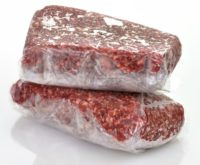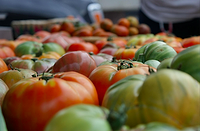Outdated Technology in the Food Supply Chain Can Threaten Your Safety

Despite the growing farm-to-table trend, food production continues to grow in complexity. At every step along the supply chain—including farm-to-table—businesses that are using antiquated systems or tracking processes not specifically designed for the food industry struggle with traceability.
Advanced systems that keep tabs on food safety and quality have become increasingly important in an industry fraught with product recalls. The number of food and beverage recalls has nearly tripled since 1999, according to a Deloitte Consulting reported. In 2013, the U.S. Food and Drug Administration reported more than 30 recalls in a single 2-month period—one of the highest on record.
Complicating the process is a number of various factors:
- The highly distributed nature of food production
- The increasingly global nature of food manufacturing
- A lack of standardized safety and quality standards
- Continued reliance on paper records or a patchwork of standalone automated systems to monitor food production
Together, these factors make traceability difficult if not impossible when a recall occurs, which means serious threats to health and safety.
Consumer-driven concerns on food safety, new legislation and initiatives from government and industry associations—like the Food Safety Modernization Act’s proposed rule on Sanitary Transportation of Human and Animal foods and the Produce Traceability Initiative—are driving producers to an important realization. In today’s food industry, increased market share and profitability is inherently linked to a proven ability to demonstrate compliance with food safety regulations and traceability requirements.
As a result, the trend to embrace enterprise resource planning (ERP) systems in every facet of the food supply chain continues to grow at an accelerated pace. Traditional ERP systems are known for their insights on business issues like sales, procurement and financials. Newer, more robust systems designed for the food industry now provide end-to-end food safety capabilities that the older systems never could have accomplished.
So how do these systems help businesses ensure suppliers provide the freshest and safest food products to their customers while adhering to industry requirements for inventory and traceability compliance?
Modern ERP systems provide comprehensive and integrated information across all aspects of a business including financial, inventory and operational data. The extension of these systems into quality control systems, advanced traceability and warehouse management systems now ensures a full audit trail of all an organization’s activity. Systems like LINKFRESH can accurately identify every single step of the food supply chain from harvesters in the field to manufacturing plants that take in the raw ingredients and distribution networks that ship products to warehouses, restaurants and grocery stores.
At the heart of a supply chain audit is comprehensive traceability information on the origins of raw materials and the journey they take through manufacture to delivery. This audit information should include a detailed record of supplier accreditation information along with their respective food safety and traceability procedures. With ERP systems, this data is held centrally and captured electronically. In the event of a product recall or a food safety issue, data can be queried and collated in minutes.
Additionally, modern ERP systems automatically collect electronic data, which can be shared and interrogated to inform critical business areas, such as Hazard Analysis and Critical Control Points policy requirements, quality assurance and traceability or supply chain audits. This data also can be used to provide real-time business intelligence reporting, key performance indicators and dashboards.
Logistics and route optimization software can be used to dynamically plan trailer loads, ensuring that the transportation conditions meet the required specification for variables such as temperature and packaging. Delivery routes can be optimized to ensure that the quickest and most efficient route from point A to point B is taken, reducing the time that food spends in transit.
Cloud-based quality assurance and traceability solutions can extend ERP traceability beyond the confines of the pack house or production floor to include business areas such as cold storage facilities, delivery trailers or actual growing, rearing or harvesting locations. And, using the newest generation of ERP systems, business critical traceability and food safety information can be recorded electronically via tablet, iPhone or iPad (or any device connected to the Internet) and uploaded to the central ERP database in real time. Information can continue to be collected and stored when network connectivity is unavailable and forwarded when a connection is restored. This is particularly useful in locations such as cold storage, containers, trailers or remote field locations. In the case of fresh produce, essential information for agronomy or use of pesticides can also be collected electronically, as can photographs of produce quality or condition. Finally, GPS mapping information is used to accurately record field location.
On the production line, modern ERP solutions can track “mass” balance in the production process. The system knows a certain weight of raw ingredient or a combination of ingredients was used and can calculate the anticipated weight of the end product. If the anticipated weight is not achieved, this could indicate that a contaminant has been introduced during production and an investigation can begin immediately.
All of this information is used by the ERP system to build a comprehensive traceability picture.
With real time electronic inventory and traceability data, a food producer can initiate a proactive product recall as soon as a food safety issue has been detected—long before the issue becomes a crisis. Today’s advanced ERP systems ensure that suppliers at every step of the food supply chain have the opportunity to grow their business while keeping consumer confidence high and maintaining the health and safety of the food supply chain.
Ron Myers is the executive vice president of LINKFRESH.
Looking for a reprint of this article?
From high-res PDFs to custom plaques, order your copy today!




